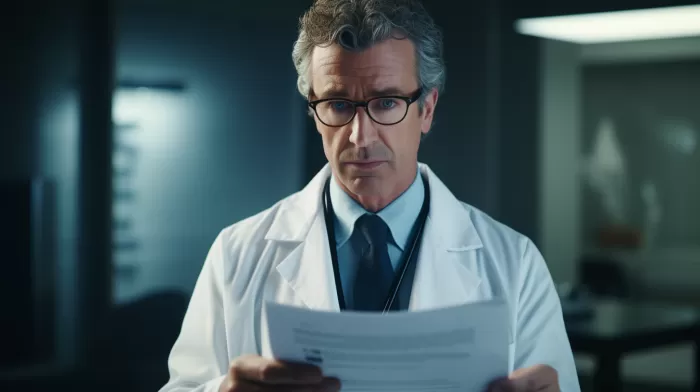Imagine that you went through a series of medical tests recently and you’re waiting to hear the results. A few days go by and you hear nothing. You assume everything must be fine, since your doctor didn’t contact you with bad news. But what if the lack of communication was actually an oversight, and important results — ones that could potentially save your life — were never reported to you? It’s a terrifying thought, but unfortunately, it’s a very real possibility.
A Shocking Reality
In a study published in the Archives of Internal Medicine, researchers analyzed over 5,000 patient records and found that in some medical groups, up to one in four abnormal test results were never reported to their patients. According to this study, many doctors lack a formal process for ensuring that patients receive crucial information about their health.
Dr. Lawrence P. Casalino, a researcher with the Department of Public Health at Weill Cornell Medical College, says that the “failure to report abnormal test results can lead to serious, even lethal consequences for the patient.” While this revelation is alarming, Dr. Casalino points out that there is some good news: Physicians who use a simple set of systematic processes to handle test results have been shown to greatly reduce their error rates.
The Dangerous “No News is Good News” Assumption
One of the reasons for the high rate of unreported test results is the lack of clear, standardized management methods among physicians. In many cases, each doctor devises their own method of communicating results, and there is often no system in place to ensure that every patient is contacted. Some medical practices even tell their patients that “no news is good news,” meaning they should assume their tests came back normal if they don’t hear from the doctor. However, this assumption can be dangerous for patients who actually have abnormal results that need attention.
Can Technology Bridge the Gap?
With today’s technological advancements, you might think that electronic communication could help improve patient-doctor connections and reduce the number of unreported test results. However, electronic health records (EHRs) and other digital tools are not without their own challenges and pitfalls.
While EHRs can help doctors and medical staff access patient information more easily, sharing test results with patients may still fall through the cracks. Many EHR systems aren’t set up to automatically send test results to patients, and relying on technology without implementing a solid communication plan can lead to a false sense of security.
Implementing Clear Communication Methods
To tackle this issue, doctors’ offices should consider adopting formal processes to ensure the timely reporting of all test results. Some possible methods include:
- Designating specific staff members for handling test results. By assigning this responsibility to certain individuals, medical practices can ensure that there is always someone monitoring and reporting test results.
-
Using a tracking and follow-up system for each test. Implementing a system that tracks the status of each test can make it easier for doctors and staff to know when results are due and whether they have been communicated to the patient.
-
Communicating test results regardless of whether they are normal or abnormal. Developing a policy where all test results are reported to patients can help to eliminate the “no news is good news” assumption and reduce the likelihood of unreported abnormal results.
-
Educating patients about the importance of following up on their own test results. Encouraging patients to take an active role in their own healthcare can assist in ensuring that they receive all the information they need to make informed decisions.
What Can You Do as a Patient?
While it’s important for doctors’ offices to implement better communication systems, patients can also take steps to ensure they receive critical test results. These steps can include:
- Requesting a copy of your test results directly. By asking for a copy of your results, you can take control of your own health information and ensure that you’re aware of any abnormalities.
-
Following up with your doctor if you haven’t heard anything after a set period. If your doctor told you to expect results in a week and you haven’t heard anything after that time, don’t assume that no news is good news. Be proactive and contact your doctor’s office to request the information.
-
Asking for clarification if you don’t understand your results. Even if you receive your test results, they may be difficult to comprehend. Don’t hesitate to ask your doctor or another medical professional for help in understanding what your results mean for your health.
In conclusion, while the responsibility for reporting abnormal test results ultimately lies with doctors and their staff, patients can play a crucial role in ensuring they receive this vital information. By staying proactive and engaged in their own healthcare, individuals can make certain they have all the details they need for a healthy future.



